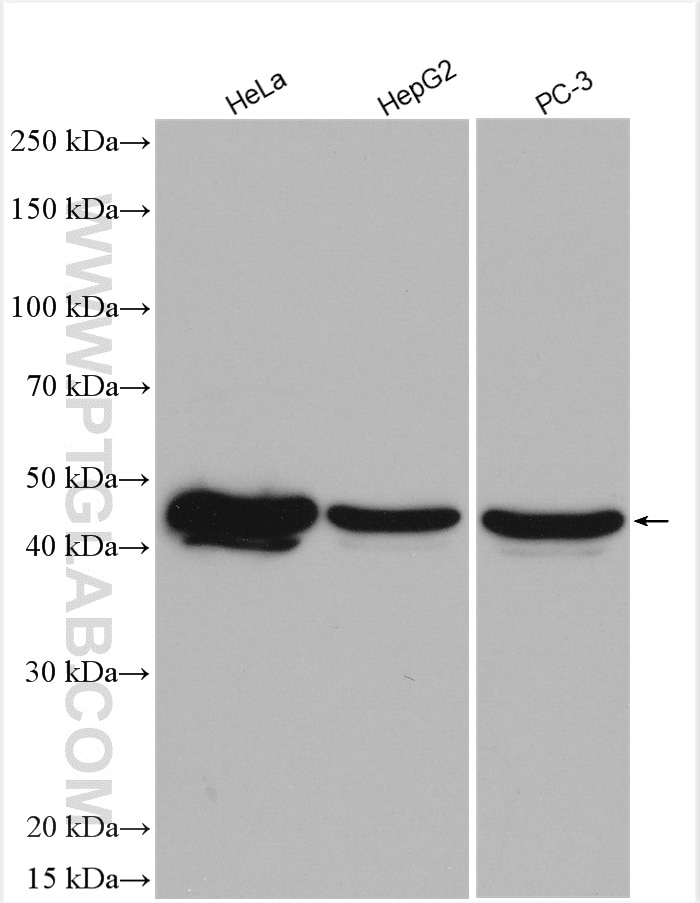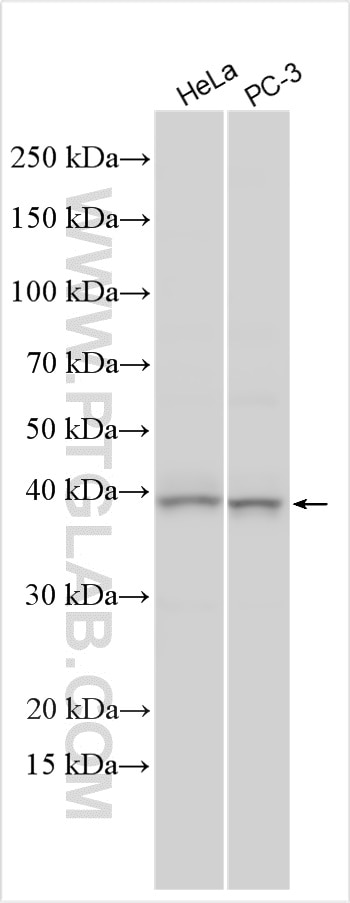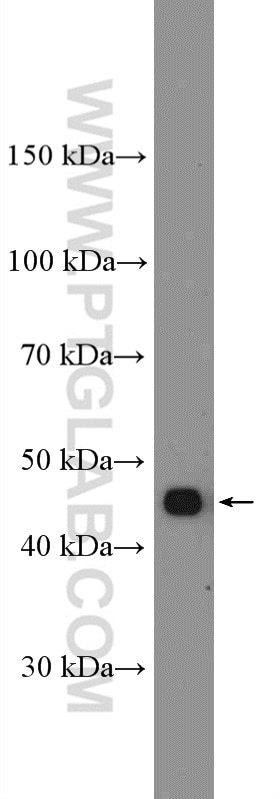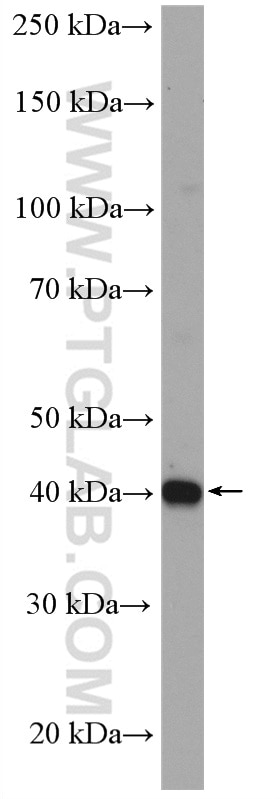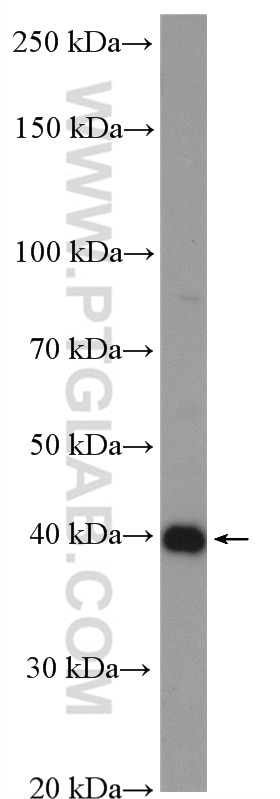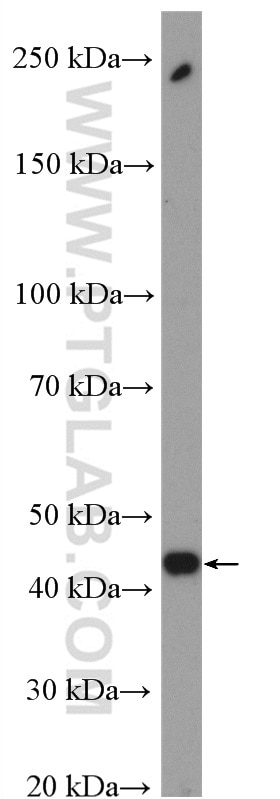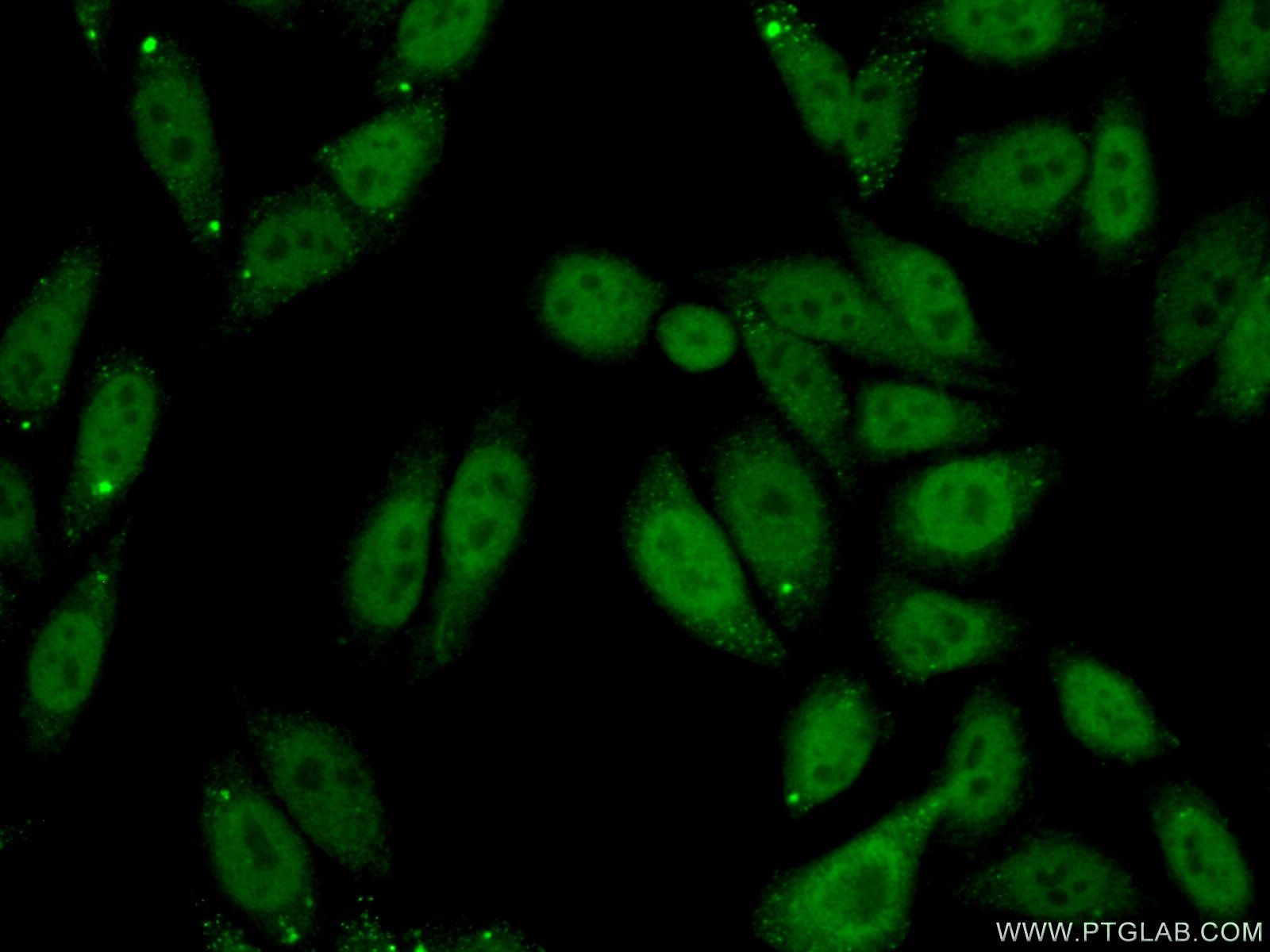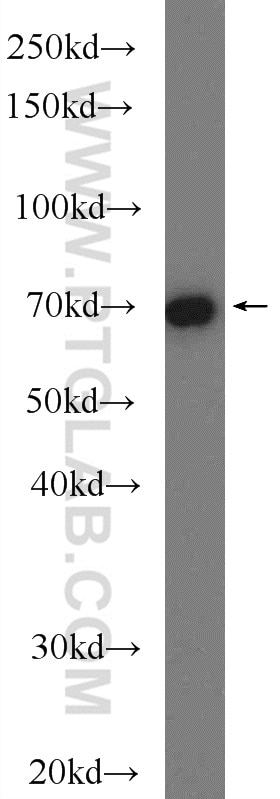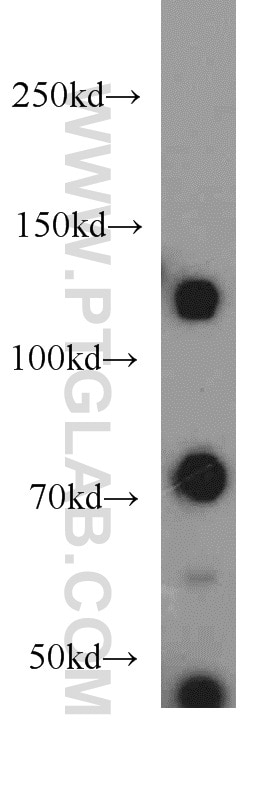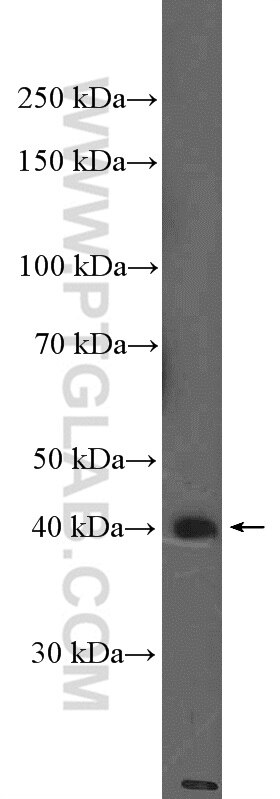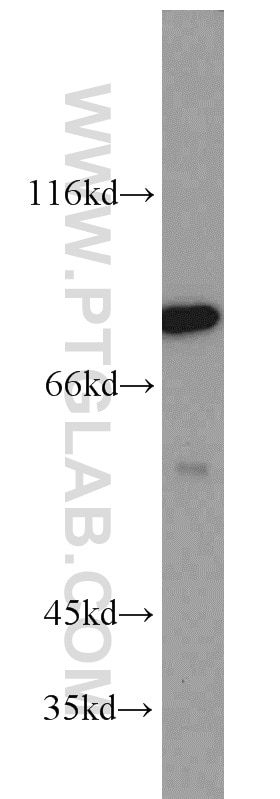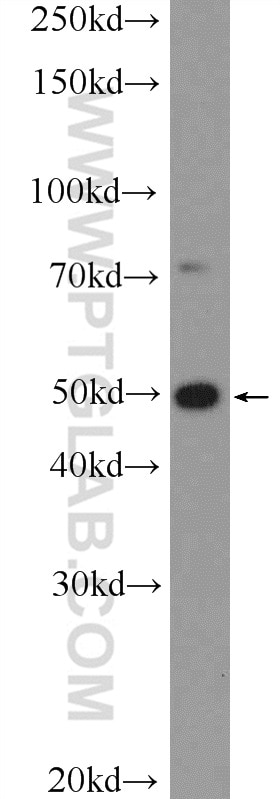- Featured Product
- KD/KO Validated
SPOP Polyklonaler Antikörper
SPOP Polyklonal Antikörper für IF, WB, ELISA
Wirt / Isotyp
Kaninchen / IgG
Getestete Reaktivität
human, Maus, Ratte
Anwendung
WB, RIP, IP, IHC, IF, CoIP, ELISA
Konjugation
Unkonjugiert
Kat-Nr. : 16750-1-AP
Synonyme
Galerie der Validierungsdaten
Geprüfte Anwendungen
| Erfolgreiche Detektion in WB | HeLa-Zellen, HepG2-Zellen, PC-3-Zellen |
| Erfolgreiche Detektion in IF | HepG2-Zellen |
Empfohlene Verdünnung
| Anwendung | Verdünnung |
|---|---|
| Western Blot (WB) | WB : 1:5000-1:50000 |
| Immunfluoreszenz (IF) | IF : 1:50-1:500 |
| It is recommended that this reagent should be titrated in each testing system to obtain optimal results. | |
| Sample-dependent, check data in validation data gallery | |
Veröffentlichte Anwendungen
| KD/KO | See 38 publications below |
| WB | See 62 publications below |
| IHC | See 11 publications below |
| IF | See 10 publications below |
| IP | See 6 publications below |
| CoIP | See 6 publications below |
| RIP | See 1 publications below |
Produktinformation
16750-1-AP bindet in WB, RIP, IP, IHC, IF, CoIP, ELISA SPOP und zeigt Reaktivität mit human, Maus, Ratten
| Getestete Reaktivität | human, Maus, Ratte |
| In Publikationen genannte Reaktivität | human, Maus, Ratte |
| Wirt / Isotyp | Kaninchen / IgG |
| Klonalität | Polyklonal |
| Typ | Antikörper |
| Immunogen | SPOP fusion protein Ag10215 |
| Vollständiger Name | speckle-type POZ protein |
| Berechnetes Molekulargewicht | 374 aa, 42 kDa |
| Beobachtetes Molekulargewicht | 42 kDa |
| GenBank-Zugangsnummer | BC003385 |
| Gene symbol | SPOP |
| Gene ID (NCBI) | 8405 |
| Konjugation | Unkonjugiert |
| Form | Liquid |
| Reinigungsmethode | Antigen-Affinitätsreinigung |
| Lagerungspuffer | PBS mit 0.02% Natriumazid und 50% Glycerin pH 7.3. |
| Lagerungsbedingungen | Bei -20°C lagern. Nach dem Versand ein Jahr lang stabil Aliquotieren ist bei -20oC Lagerung nicht notwendig. 20ul Größen enthalten 0,1% BSA. |
Hintergrundinformationen
The SPOP (TEF2) protein was previously identified as an autoantigen in a patient with scleroderma pigmentosum. SPOP (speckle-type POZ protein), also known as TEF2, HIB homolog 1 or Roadkill homolog 1, is a member of the Tdpoz family containing one N-terminal MATH (Meprin and TRAF Homology) domain and one C-terminal BTB/POZ domain. SPOP can exist as a homodimer and is expressed in a variety of tissues localizing to the nucleus. BTB-mediated SPOP dimers form linear oligomers via BACK domain dimerization, and we determine the concentration-dependent populations of the resulting oligomeric species (PMID: 27220849 ). Through an interaction with CUL-3, SPOP is involved in ubiquitinylation and protein degradation. SPOP specifically interacts with CUL-3 via its BTB/POZ domain and recruits substrates to the CUL-3-based ubiquitin ligase via its MATH domain. Substrates recruited by SPOP and targeted for ubiquitylation via the CUL-3/SPOP complex include PDX-1, Bmi-1, MacroH2A, PIPK II ∫ and Daxx. These substrates are subsequently degraded by the proteasome. In addition, SPOP itself becomes ubiquitylated by the CUL-3-based ubiquitin ligase and is targeted for proteasomal degradation.
Protokolle
| Produktspezifische Protokolle | |
|---|---|
| WB protocol for SPOP antibody 16750-1-AP | Protokoll herunterladen |
| IF protocol for SPOP antibody 16750-1-AP | Protokoll herunterladen |
| Standard-Protokolle | |
|---|---|
| Klicken Sie hier, um unsere Standardprotokolle anzuzeigen |
Publikationen
| Species | Application | Title |
|---|---|---|
Nature Cyclin D-CDK4 kinase destabilizes PD-L1 via cullin 3-SPOP to control cancer immune surveillance.
| ||
Nat Med Prostate cancer-associated SPOP mutations confer resistance to BET inhibitors through stabilization of BRD4.
| ||
Nat Med Intrinsic BET inhibitor resistance in SPOP-mutated prostate cancer is mediated by BET protein stabilization and AKT-mTORC1 activation.
| ||
Cell Res ILF3 is a substrate of SPOP for regulating serine biosynthesis in colorectal cancer.
| ||
Mol Cell DNA Damage Promotes TMPRSS2-ERG Oncoprotein Destruction and Prostate Cancer Suppression via Signaling Converged by GSK3β and WEE1. | ||
Mol Cancer SPOP-mediated ubiquitination and degradation of PDK1 suppresses AKT kinase activity and oncogenic functions.
|
